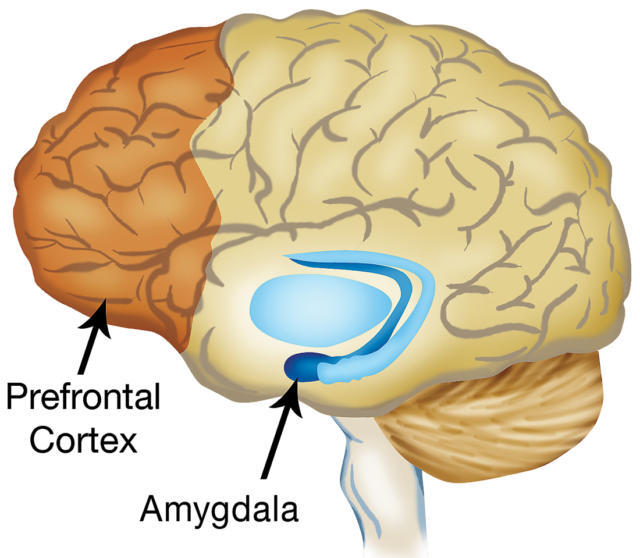Some moments sneak up on you like a gentle nudge. Others, well, slam into you like a rogue wave in a calm sea. The breaking point…that raw, unfiltered moment when the old story you’ve been telling yourself about your life and perhaps, your career, suddenly collapses. No smoke, no mirrors. Just a stark truth staring you down like your morning coffee but with a punch. The breaking point doesn’t arrive with a calendar invite though. It barges in like that one friend who shows up unannounced: dramatic, loud, and impossible to ignore!
Welcome to Part 2 of our #CareerX0 series, where we take the awakening from last time and watch it collide with the brutal reality. Spoiler: It’s messy, it’s absolutely uncomfortable, but it’s often an essential catalyst for real and lasting change.
What Really is the Breaking Point?
It’s the mental equivalent of your laptop spinning the blue screen of death only it’s your brain screaming, ‘Force quit'! In psychology, the breaking point is that threshold where accumulated stress, frustration, or dissonance overwhelms your coping mechanisms. Think of it as your brain’s “too much, I can’t deal” alarm going off. Research on psychological resilience shows us that everyone has a breaking point. A moment when the brain’s ability to regulate emotions and manage stress is maxed out.
Think of it as your brain’s “too much, I can’t deal” alarm going off.

It’s not just burnout (though that can be part of it), it’s the exact moment your current way of living or working becomes intolerable. That uneasy gut feeling, that lump in your throat you can't get rid of, the restless nights, the sneaky doubts that you try to hide from yourself that’s your internal system screaming for attention and care.
Neuroscience tells us it’s when the prefrontal cortex, your executive decision-maker, throws in the towel, and the amygdala, your emotional fire alarm, takes over overwhelmingly. Chronic stress and dissatisfaction trigger a neurochemical cascade:
- Cortisol spikes, increasing alertness but also impairing memory and emotional regulation, if persistent
- The prefrontal cortex, which is usually responsible for logical thinking and future planning, becomes less effective
- The amygdala, which processes fear and emotional memories, becomes hyperactive
The result? You become trapped in a fight-flight-freeze state perfectly primed to question everything. No wonder your career feels like a tightrope walk over a pit of alligators. For more real-life context, a meta-analytic review of 71 independent samples (N = 48,528) found a strong inverse relationship between job control and burnout: lower perceived control over one’s work was correlated with higher levels of emotional exhaustion, depersonalisation, and reduced personal accomplishment. In fact, job control is often seen as a buffer: the systematic review showed that job control “protects against” emotional exhaustion and burnout in many longitudinal studies. Now that we know what it looks like inside the brain, let’s zoom out... Why do we actually get pushed there?
Why Do We Hit Breaking Point?
Usually, it’s a slow boil, not a sudden explosion. Here are some common culprits, all backed by research and lived experience:
- Identity dissonance: Remember that “career identity dissonance” from Part 1? That gap between who you are and what you do? It eats away at your mental bandwidth until something’s gotta give
- Unrealistic expectations: The societal “should”... What you should be earning, what your job should look like, where your career should be... pile up like unread emails. Psychologists call this cognitive overload, and it’s a recipe for emotional exhaustioon
- Lack of autonomy: Human brains crave control. Studies in organisational psychology confirm that perceived control at work is the single biggest predictor of job satisfaction. When you feel boxed in or like a cog in the machine, your breaking point gets closer
"I felt like I was living someone else’s story, stuck in a job that
didn’t reflect who I truly was. That’s when I knew I hit my breaking point."
— Sara, Marketing Professional
The Breaking point however is also a turning point. Psychology professor Brene Brown calls it “the rumble with vulnerability.”  It’s where you face your fears head-on, grapple with uncertainty, and decide whether to stay stuck or pivot toward growth. Research on post-traumatic growth tells us that individuals who experience significant adversity, including career crises, often develop greater resilience, deeper self-awareness, and more authentic life goals after the dust settles. So, while it hurts like hell, the breaking point is actually fertile ground for permanent transformation.
It’s where you face your fears head-on, grapple with uncertainty, and decide whether to stay stuck or pivot toward growth. Research on post-traumatic growth tells us that individuals who experience significant adversity, including career crises, often develop greater resilience, deeper self-awareness, and more authentic life goals after the dust settles. So, while it hurts like hell, the breaking point is actually fertile ground for permanent transformation.
The Breaking point however is also a turning point.
How to Recognise You’re at Your Breaking Point
If your Monday blues start creeping in on Saturday morning, congratulations... You’re getting the early-bird edition of the breaking point. You’re not alone. Over half (≈ 55 %) of U.S. workers say they’ve experienced a “quarter-life career crisis” (some version of this breaking point) between ages 20–35. And more broadly, surveys suggest that 60 % of workers report boredom in their jobs, 54 % feel trapped, and 71 % report elements of burnout. If you’re nodding along, wondering if you’re nearing or at your own breaking point, look out for these signals:
- Persistent feelings of dread about work or your future
- Loss of motivation or interest in activities you once enjoyed
- Physical symptoms like insomnia, headaches, or a racing heart
- Constant internal dialogue doubting your worth or decisions
- Avoidance behaviours like calling in sick, procrastinating, or zoning out
None of these are “weakness.” They’re your brain’s loud and clear messages: “Change is overdue.” When the breaking point hits, giant leaps feel impossible.
Pause for a moment: What signals have you noticed in yourself recently? How often do they occur?
Path from the Breaking Point
All of us will hit the breaking point someday or the other.  Spotting the signs is one thing, moving forward is another. But, what to do then? Here’s what neuroscience and psychology recommend to begin climbing out:
Spotting the signs is one thing, moving forward is another. But, what to do then? Here’s what neuroscience and psychology recommend to begin climbing out:
- Micro decisions: Make one tiny choice a day that nudges you toward your values. That’s it. Maybe it’s updating your LinkedIn headline or reading one career-related article. Small wins boost dopamine, rebuilding motivation.
- Self-compassion: Research by Dr. Kristin Neff shows self-compassion reduces stress and promotes emotional resilience. Be as kind to yourself as you would to a friend in your shoes. (Yes, even on your worst days.)
- Reframe failure: Neuroscience tells us that your brain is wired to learn from mistakes the key is how you interpret them. View the breaking point as feedback, not a verdict.
- Seek Social Support: Humans are wired for connection. Sharing your story with trusted friends or mentors activates oxytocin, reducing stress and fostering perspective.
If awakening was the spark, the breaking point is the firestorm. It’s raw, disruptive, and deeply uncomfortable but that’s where clarity emerges from the chaos.
As you navigate this phase, remember: Growth isn’t linear. The breaking point might feel like a fall, but it’s actually a fall forward. Are you around the breaking point? Are you avoiding responsibilities, not showing up with your 100% or any other signs like mentioned before? Well, as always, there's way ahead!
Try This Now
Are you at your breaking point? Ask yourself, honestly:
- Am I showing up each day with intention or just going through the motions?
- Am I dodging bigger responsibilities because they feel overwhelming, or settling for “easy mode”?
- Have I quietly stopped caring about things that once lit me up?
- Write down one thing you’ve been avoiding at work. Then ask: what’s one micro-step I can take in the next 24 hours to face it head-on?
In Part 3 of #CareerX0, we explore The Unseen Work, the grit, persistence, and daily practices that build a meaningful career from the ashes of disruption. Until then, keep breathing, keep questioning, and keep listening to that restless explorer within. Sometimes, you need to break down before you can break through.